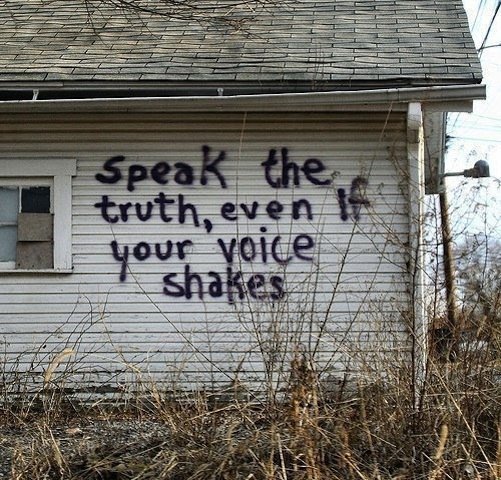Project Title
Open Media Network (OMN): Portable Digital Commons for a Federated Europe
Summary
The Open Media Network (#OMN) is a real grassroots initiative to build sustainable, human-centred digital infrastructure aligned with the principles of the #openweb and the #4opens. To providing easy-to-use, hosted cloud services with service portability and freedom at their core – OMN focuses on creating living social ecosystems alongside technical infrastructure.
At a time when the European Union is investing in alternatives to dominant platform monopolies (#dotcons), The OMN addresses a critical gap: ensuring that open infrastructure remains socially grounded, decentralised in governance, and accessible to grassroots communities, not only institutional actors.
This project proposes to develop practical tools, governance models, and community infrastructure to support a resilient federated ecosystem built on open standards such as #ActivityPub.
Problem Statement
The digital public sphere is currently dominated by large corporate platforms that centralise power, restrict portability, and commodify user participation.
The EU’s growing investment in digital sovereignty and open infrastructure presents a historic opportunity. However, there is a structural risk of replacing Californian platform capitalism with European platform capitalism; building technical infrastructure without sustainable social ecosystems; funding professionalised, institutional actors while excluding needed grassroots innovation.
Healthy digital ecosystems require tension and balance between institutional stability and grassroots experimentation. Without this, “commons infrastructure” risks becoming technocratic infrastructure lacking community participation – leading to failure, abandonment, and wasted investment.
Project Vision
The Open Media Network aims to develop a federated, portable digital ecosystem where: individuals and communities retain control over their data and identity; services are interoperable and portable across providers; governance is participatory and transparent; grassroots actors can build and sustain independent infrastructure.
The goal is not only technological decentralisation but social decentralisation, ensuring that federation is lived practice rather than technical abstraction.
Objectives
- Portable Hosted Services. Develop and deploy easy-to-use hosted services based on open standards that prioritise: service portability between providers; user-controlled data ownership; interoperability via ActivityPub and related protocols.
- Grassroots Governance Models. Design and test governance frameworks rooted in #4opens principles, with open data where appropriate; open process and decision-making; open standards and open participation. These models will be documented as reusable frameworks for wider adoption.
- Experimental Commons Infrastructure. Create an experimental environment where: grassroots communities can launch federated services; low-resource groups can participate without heavy technical barriers; experimentation is encouraged alongside stability.
- Historical Memory and Knowledge Transfer. One of the recurring failures of digital movements is loss of institutional memory. OMN integrates documentation and archiving into the infrastructure itself, ensuring lessons learned are preserved and accessible.
Key Activities
- Develop and maintain ActivityPub-compatible hosted services.
- Build onboarding pathways for non-technical users and grassroots organisations.
- Establish pilot communities using OMN infrastructure (e.g. activist media, local networks, cooperative publishing).
- Produce documentation and toolkits for governance and sustainability.
- Engage with EU initiatives (e.g., NGI Commons) to bridge grassroots and institutional approaches.
Innovation
Unlike many decentralisation projects that focus primarily on technical architecture, OMN emphasises social infrastructure as core technology; governance experimentation alongside code; low-barrier participation for grassroots actors. This creates a resilient ecosystem where innovation emerges from diverse communities rather than centralised development teams.
Expected Impact
Increased adoption of federated technologies across grassroots communities to reduced dependency on proprietary platforms. Strengthened European digital commons aligned with democratic values by development of replicable governance models for decentralised ecosystems. Long-term sustainability through community ownership rather than platform lock-in.
Alignment with EU Priorities
This project supports digital sovereignty and European autonomy, open standards and interoperability, sustainable digital commons, privacy and data portability and innovation through diversity and experimentation.
Sustainability Strategy
OMN operates on a low-cost, distributed model, prioritising: community stewardship; cooperative hosting paths; modular infrastructure that can be replicated and adapted. Rather than scaling toward centralisation, sustainability emerges through federation and shared maintenance.
Consortium and Community
OMN builds upon decades of grassroots media and openweb experience, including work on Indymedia and federated social networks. The project actively collaborates with FOSS communities, federated platform developers, grassroots media networks and independent infrastructure providers.
Funding Request
We seek funding to support: development and seed infrastructure hosting, coordination and community facilitation, documentation and knowledge sharing leading to governance experimentation and research.
Closing Statement
Europe has a unique opportunity to build digital commons that avoid the failures of platform capitalism. The Open Media Network provides a grassroots pathway that complements institutional initiatives, ensuring that the future European internet remains participatory, portable, and human-centred.
Projects
https://hamishcampbell.com/?s=OMN++functions we need to add a README to the project page https://unite.openworlds.info/Open-Media-Network/Open-Media-Network
https://unite.openworlds.info/Open-Media-Network/MakingHistory
https://unite.openworlds.info/indymedia/indymedia-reboot
https://unite.openworlds.info/Open-Media-Network/4opens
https://unite.openworlds.info/Open-Media-Network/openwebgovernancebody
Need to add this for context – How can we talk about the #NGO mess as hard blocking https://hamishcampbell.com/the-ngo-mess-is-hard-blocking-2/
The #openweb reminds us that meaningful autonomy comes from shared infrastructure, collective governance, and mutual trust. Projects like #OMN are built on this understanding: individuals do not create networks alone; networks create the conditions that allow individuals to flourish. Real freedom grows from commons-based collaboration, not from isolated platforms or competitive silos.
UPDATED 02
Open Media Network (#OMN)
A Practical Infrastructure Layer for Portable, Human-Centred Digital Commons
Summary
The Open Media Network (OMN) is a pragmatic effort to improve the usability, portability, and resilience of federated digital infrastructure through incremental engineering grounded in existing open standards.
Rather than introducing new protocols or replacing existing ecosystems, OMN focuses on integrating known working components – ActivityPub, open hosting practices, and activist community traditions – into deployable, reusable infrastructure patterns.
The goal is straightforward we build a practical layer that allows grassroots communities and small organisations to deploy federated services that are portable, interoperable, and socially sustainable.
This project addresses a persistent gap between technically sound decentralised systems and real-world adoption by non-specialist users.
Problem Statement
The technical foundations of decentralised social infrastructure already exist. Protocols such as ActivityPub demonstrate interoperability and federation at scale. However, adoption barriers remain that existing solutions optimise for developers rather than communities. And institutional funding risks producing technically impressive systems that fail socially due to missing grassroots participation.
This results in a paradox, an ecosystem has functional protocols but lacks usable grassroots infrastructure patterns. The OMN addresses this gap, it’s not a new platform or protocol, more an integration and implementation project that focuses on packaging existing federated technologies into existing cultures. Creating reproducible deployment models for small-scale operators, that natively scale by federating. Supporting data flows and thus service migration between providers. And embedding governance into operational practice rather than treating governance as a theoretical layer.
The core engineering philosophy is to use existing tools.
We need to work on flows and commons they are coded into the current ActivityPub instance code but not “implemented” so barely used. The most developed might be #peertube with kinda hidden idea of flows of media objects, videos. You can see the #OMN path for this here https://hamishcampbell.com/human-tech-omn/
The Fediverse in its current form works, but in a narrowband way. The Fediverse right now is largely instance-centric and account-centric. But ActivityPub itself is object-centric and flow-capable, we barely use that layer. The protocol encodes flows of objects between actors – but most implementations collapse this into timelines and accounts. That’s not the only path available.
Take PeerTube as an example, it quietly models media as flowing objects – videos circulating across nodes, mirrored, cached, redistributed. That’s closer to a commons’ logic. The idea of flows is there – but it isn’t foregrounded in most social implementations. What you’re pointing toward with #OMN is not “radical overhaul.” It’s activating parts of the protocol that are already there. Not replacing the Fediverse, extending it, using what is latent.
The real risk isn’t experimentation. If we don’t develop shared media commons, resource flows between nodes, governance rooted in users and admins with public-first infrastructure. We risk the inrush of #NGO and commercial scale pressure, funding gravity, and the commercial entrants will define those flows for us.





